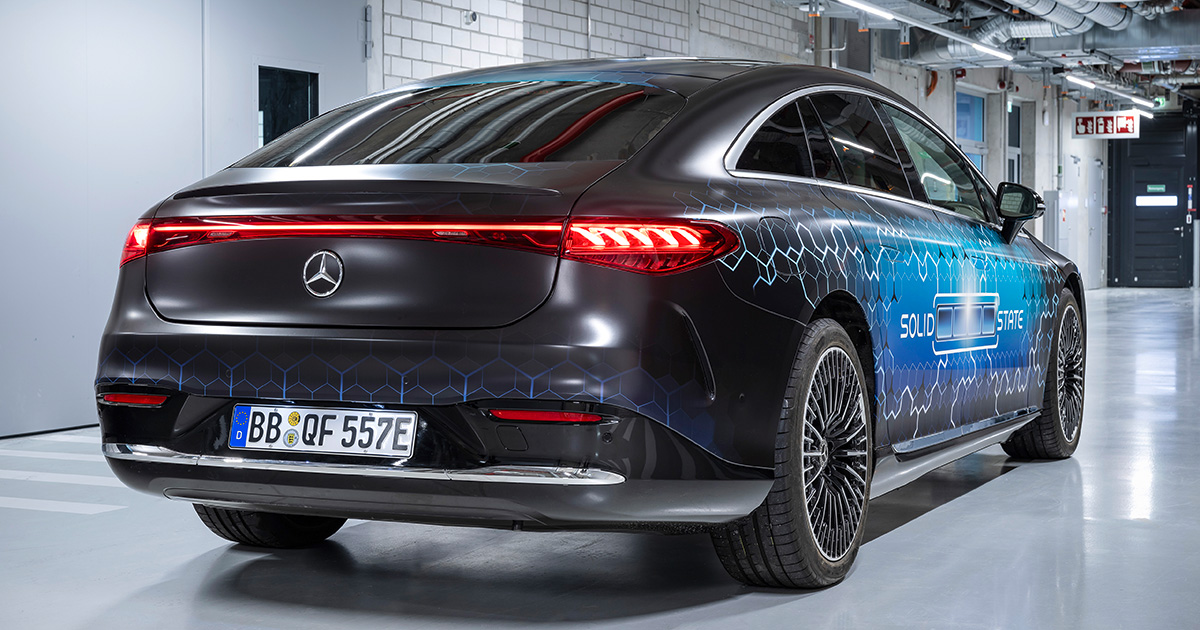Range of over 1,000 kilometres: Mercedes-Benz has started testing the EQS with a solid-state battery

Mercedes-Benz engineers together with Factorial have developed a prototype of a solid-state battery for an electric vehicle. This prototype was installed in a production Mercedes-Benz EQS instead of a standard battery. The experimental vehicle has already undergone laboratory tests in Stuttgart at the end of 2024, followed by road tests in February 2025.
Here's What We Know
Unlike conventional lithium-ion batteries, the new battery uses solid electrolyte instead of liquid electrolyte. This offers several advantages at once:
- Higher energy capacity - up to 450 Wh/kg at the cell level.
- Less weight.
- Safety - solid electrolyte significantly reduces the risk of fire.
A solid-state battery in an EQS-based vehicle provides up to 25 per cent more range compared to a standard EQS battery of similar size and weight. In a test EQS with the new battery, the range exceeds 1,000 kilometres on a single charge, while the production EQS 450+ with a 118 kWh battery covers just over 800 kilometres.

A solid-state battery pack for the Mercedes-Benz EQS. Illustration: Mercedes-Benz
Mercedes-Benz will conduct extended road and laboratory tests in the coming months to evaluate the durability and stability of the solid-state battery under real-world conditions.






Solid-state batteries are one of the most promising areas of development in electric vehicles. If the technology proves to be effective, it could make electric vehicles lighter, safer and significantly increase range without expanding the battery pack. Other manufacturers are also actively working in this direction. For example, China's BYD recently announced that it will start equipping its electric vehicles with solid-state batteries in 2027. However, mass deployment of the technology is not expected until 2030.
Source: Mercedes-Benz